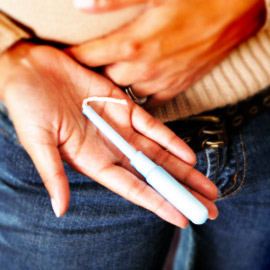Toxic shock syndrome is a lethal bacterial infection that arises suddenly and is always a cause for alarm. The condition may become fatal if not treated and is caused by the staphylococcus bacteria. The bacterium is harmless as long as it does not release toxins into the bloodstream. Menstruating women are more likely to suffer from the condition as the bacteria are provided with a suitable environment to live in i.e. tampons.
Symptoms
- Low blood pressure
- Nausea and vomiting
- High fever
- Diarrhea
- Confusion
- Dizziness
- Rashes that seem like sunburns may appear on the skin. You may find skin peeling off your toes or fingers
Risk factors
While menstruating women are usually at risk, there are many other victims of the disease—male or female. A person recovering from an open wound, surgery or burn may also suffer from this condition. Women who have just given birth may also incur the disease. Super absorbent tampons provide a suitable environment for bacteria therefore; you must change it regularly and never wear it overnight—wear a sanitary pad before sleeping instead. It is important to note that people who have suffered from the condition once are more likely to experience it again at any point of their life.
Treatment
If any of the above mentioned symptoms such as high fever, diarrhoea, confusion or rashes appear after or during your menstrual period or after surgery, it is important that you seek medical attention immediately. It is important to know that toxic shock syndrome is a very fatal condition, if left untreated as it may even lead to death in some cases. If you notice symptoms that may make you suspect toxic shock syndrome, remove your tampon or diaphragm immediately if you are wearing one.
Prevention
- Use low absorbency tampons and change them frequently
- Do not sleep with tampons, use sanitary pads instead
- If you can wear sanitary napkins instead of pads or tampons, it will be better
- If you have recently undergone a surgery or if you have recently given birth, make sure you are aware of the symptoms of toxic shock syndrome and seek medical help if any of the symptoms take place.
Further Training
This topic is not covered in any St Mark James first aid program, however, it is still important for women to know the symptoms and how to manage toxic shock syndrome before it enters the bloodstream and worsens. If you suspect that you have toxic shock syndrome contact a medical doctor immediately.
Video Related to Toxic Shock Syndrome
